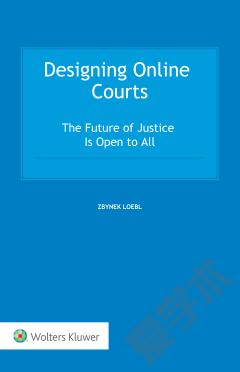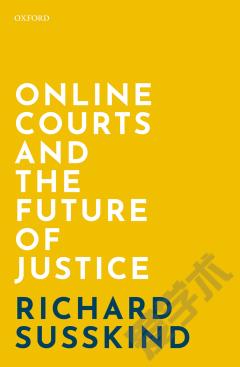Designing Online Courts —— The Future of Justice Is Open to All
----- 设计在线法院:司法的未来向所有人开放
The newest phenomenon in the field of online dispute resolution (ODR) is the emergence of online courts. Holding great promise for end-users of the justice system, online courts can expand access to remedies, improve efficiency and lead to greater fairness and even cost savings. Nonetheless, there is a danger that the rush to digitization will compromise due process or the need for careful re-design of judicial procedures. This book, focusing on ethical issues and key implementation topics, is the first to provide a comprehensive template for how online courts should be designed. The author is well-known for his contributions to the development of the ODR movement. In this book he describes and analyzes features of online courts such as the following: how to use technologies such as predictive analytics and artificial intelligence (AI) for judicial tasks; how to approach the potential for international standardization; how to plan for cooperation rather than competition with private ODR platforms; and how to avoid the mistakes of the earliest online courts. Throughout, the author stresses the need for developing open ODR standards, schemes and specifications for open-source software. With its detailed first-hand information about which online courts have succeeded and why, and its authoritative predictions regarding future trends, this book will serve as the go-to information and education source for judges and administrators, as well as for lawyers, public officials and platform designers worldwide.
{{comment.content}}








 京公网安备 11010802027623号
京公网安备 11010802027623号